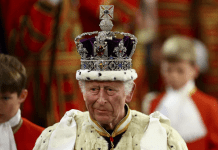Cyril Ramaphosa, the President of South Africa, is facing a challenging path to securing a second term in office. Despite his polished and experienced demeanor, along with his significant role in the anti-apartheid movement, recent polls suggest that his party, the African National Congress (ANC), might not secure more than 50% of the vote in the upcoming elections. This would be the first time in 30 years that the ANC falls below this threshold.
Cyril Ramaphosa was born in Johannesburg in 1952, during the era of apartheid, a system of racial segregation in South Africa. His family experienced the injustices of apartheid firsthand, being forcibly relocated to the township of Soweto. Even as a young student, Ramaphosa was known for his confidence and activism, challenging his teachers and becoming involved in the black consciousness movement.
Ramaphosa continued his activism at university, enduring periods of solitary confinement due to his involvement. He later became a prominent figure in the National Union of Mineworkers (NUM), leading one of the largest strikes in South Africa’s history. Alongside his activism, he joined the ANC and worked closely with Nelson Mandela to negotiate an end to apartheid.
After apartheid ended, Ramaphosa transitioned into the business world, amassing wealth through various ventures. However, his reputation suffered after the Marikana massacre in 2012, where police killed 34 workers at a platinum mine. Ramaphosa, then a director at the mining company, faced criticism for his role in the events.
Despite these controversies, Ramaphosa reentered politics and became the deputy president of South Africa under Jacob Zuma. He later succeeded Zuma as ANC leader and president of the country, promising to tackle corruption and economic challenges. However, his presidency has been marred by scandals, including accusations of corruption and mismanagement.
Ramaphosa’s leadership has faced criticism for its handling of corruption allegations and economic struggles, including high unemployment and widespread power cuts. Despite his promises to fight corruption, Ramaphosa himself has been implicated in various scandals, leading to calls for his resignation.
As South Africa heads into elections, Ramaphosa’s ANC is facing declining popularity, with voters concerned about issues like unemployment and corruption. However, supporters argue that Ramaphosa has been a steady leader despite inheriting difficult circumstances. His administration has made strides in areas like gender representation and international diplomacy.
Cyril Ramaphosa’s journey from activist to president has been marked by both achievements and challenges. As he seeks reelection, he faces tough competition and criticism, but his supporters believe in his ability to lead South Africa forward. Regardless of the election outcome, Ramaphosa’s legacy will be shaped by his efforts to address the country’s longstanding issues and build a brighter future for all South Africans.























